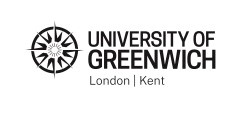This international summer school offers an immersive learning experience on multiple facets on multilingualism, facilitated by scholars internationally recognised, and the opportunity to access international networks.
Organised by the Centre for Research in Language and Heritage, University of Greenwich (UK) and the Centre for Linguistics, Language Education and Acquisition Research (CLLEAR), University of Southampton (UK).


This school is funded by the Centre for Research in Language and Heritage, University of Greenwich and the Southampton Institute for Arts and Humanities (SIAH).
This international summer school offers an immersive learning experience on multiple facets on multilingualism facilitated by scholars internationally recognised, and the opportunity to access international networks. The course is highly interactive and takes a holistic approach, covering topics that range from the theoretical underpinnings of language analysis, development and processing, to the quantitative analysis of the data. Classes and workshops will be delivered online over the course of one week. Participants will receive a link to course documentation including key readings, some to prepare prior to the lectures.
BOOKINGS ARE NOW OPEN - BOOK YOUR PLACE HERE
Date: 30 June - 4 July 2025
Teaching language: English
Cost: £250
Online delivery via MS Teams - Delegates will be provided with class links
For enquiries email: CREL@gre.ac.uk
Participants will learn:
Topics include:
- Evidence in second language acquisition
- Native language attrition
- Heritage language acquisition
- Third language acquisition
- Syntactic analyses relevant to multilingualism research
- Quantitative methods
Participants will receive:
- A five-day immersive learning experience comprising different aspects of multilingualism
- Workshops on the quantitative analysis of data
- Invitation to an open public lecture on the last day of the course
- A certificate of attendance, upon active engagement throughout the week
Class materials and online links will be provided to participants
Who Should Attend?
The course is suitable for graduates who want to get a head start in postgraduate studies as well as masters or doctoral students interested in honing their knowledge and broadening their networks internationally. The course can also be attractive to language practitioners interested in getting an overview of current knowledge of language learning processes and how they are investigated.
Lecturers
- Professor Laura Domínguez, Head of Department of Modern Languages and Linguistics, University of Southampton (UK)
- Professor Philippe Prevost, Professor in Language Sciences: general linguistics and phonetics, Université de Tours
- Dr Eloi Puig-Mayenco, Lecturer in Applied Linguistics, Kings College University of London (UK)
- Dr Ana Paula Palacios, Senior Lecturer in Statistics, University of Greenwich (UK)
- Dr Michael Wiper University Carlos III, Madrid (Spain)
- Professor Michelle Sheehan, Professor of Linguistics, Newcastle University (UK)
- Dr Anna Havinga, Senior Lecturer in Sociolinguistics, University of Bristol (UK)
- Dr Norma Schifano, Associate Professor in Modern Languages, University of Birmingham (UK)
- Professor Monika S. Schmid, Head of Department of Language and Linguistic Science, University of York (UK)
Provisional Programme (BST Time Zone)
Date/Time | Monday | Tuesday | Wednesday | Thursday | Friday | |
10:00-11:00 |
Heritage language acquisition Professor Laura Domínguez | |||||
11:30-12:30 |
Exploring L3 acquisition: from theoretical discussions to empirical investigations Dr Eloi Puig-Mayenco | |||||
13:00-14:00 |
Multilingualism and language impairment Professor Philippe Prevost | |||||
14:00-15:00 | LUNCH BREAK | |||||
15:00-17:30 | Statistical analysis (Mon-Tues) Dr Ana P Palacios and Dr Michael Wiper
| Linguistics in the Languages Classroom (Weds-Thurs)
Professor Michelle Sheehan, Dr Anna Havinga & Dr Norma Schifano | *Open Lecture (15:00-16:30) Conflict, trauma, and language attrition: the case of Ukrainian refugees Professor Monika Schmid FBA | |||
Brief description of courses:
Input and bilingual language acquisition: focus on heritage children and their parents
Professor Laura Domínguez, University of Southampton (UK)
In this course we will investigate two main processes and outcomes of bilingual acquisition: heritage language acquisition and native language attrition. In both cases a speaker is exposed to input from two different languages but with different quantitative and qualitative properties. Some of the main characteristics and typical outcomes of bilingualism in these contexts will be explored using data from recent studies as evidence. You will be an opportunity to learn new material and consolidate any previous knowledge on these topics you may already have.
Multilingualism and language impairment
Professor Philippe Prevost, Université de Tours (France)
This course explores the difficulties of identifying language impairment in bilingual children. We will talk about similarities between language development in bilingual children and children with language impairment, which lies at the heart of this challenge. We will also talk about the factors that may impact bilingual language development (e.g. input quantity and quality, socio-economic status, etc.), looking at different linguistic domains (mainly the lexicon, phonology and morphosyntax). This will lead us to discuss what language assessment tools are most appropriate for evaluating the language capacities of bilingual children and identifying language impairment in this population.
Exploring L3 acquisition: from theoretical discussions to empirical investigations
Dr Eloi Puig-Mayenco, Kings College London (UK)
The focus of this course is to present a critical overview of the field of L3/Ln acquisition with special emphasis on morphosyntactic transfer. We will first present some theoretical constructs relevant for the field, and then discuss the most recent theories and hypotheses with relevant empirical data that is available to date. We will specifically show how to design studies that allow us to test the most recent proposals, highlighting important methodological choices that one needs to bear in mind when designing and L3 study. We will finish the course with some discussion of potential directions for future research regarding both transfer selection and L3 developmental trajectories.
Statistical Analysis
Dr Ana Paula Palacios, University of Greenwich (UK), Dr Michael Wiper University Carlos III, Madrid (Spain)
This course revises some key ideas in statistical testing with application to linguistics including statistical logic (ideas of estimation hypothesis tests), testing for relationships and comparing groups (chi2 tests of association and independence) and linear models (ANOVA and regression).
Linguistics in the Languages Classroom
Professor Michelle Sheehan, Newcastle University (UK), Dr Anna Havinga, University of Bristol (UK) & Dr Norma Schifano, University of Birmingham (UK)
In this interactive course you will learn about:
(1) The teaching of languages in UK schools and how this compares with the teaching of languages in other countries and with the teaching of other subjects;
(2) Potential ways in which linguistics can feed into language teaching;
(3) Potential issues associated with introducing language learners to linguistics (prescriptivism, teacher training, teacher time, teacher/pupil attitudes to language);
(4) The results of previous studies which have introduced school-aged language students to linguistics in the US, Brazil, Netherlands, Spain and the UK, considering both students’ and teachers’ perspective.
Conflict, trauma, and language attrition: the case of Ukrainian refugees - Open Lecture - Friday 4 July 2025
Time: 15:00-16:30
Location: Online, booking link to be announced
Professor Monika S. Schmid, Head of Department of Language and Linguistic Science, University of York (UK)
There is a growing body of research establishing that people who move to a new linguistic environment may experience problems of lexical access and fluency in their native language. However, while we know that there is considerable individual variability in how much any one speaker will be affected by such phenomena, it has proven difficult to identify predictors, such as language background or frequency of use of either language which may explain these differential patterns. There is some evidence that traumatic events, such as persecution of war, may play a role, as was shown by Schmid’s (2002) study of German-Jewish Holocaust survivors. I will present findings from an investigation of Ukrainian refugees in the UK, which seeks to determine to what extent attitudes and experiences may influence the relative accessibility of Ukrainian and Russian to these speakers.
